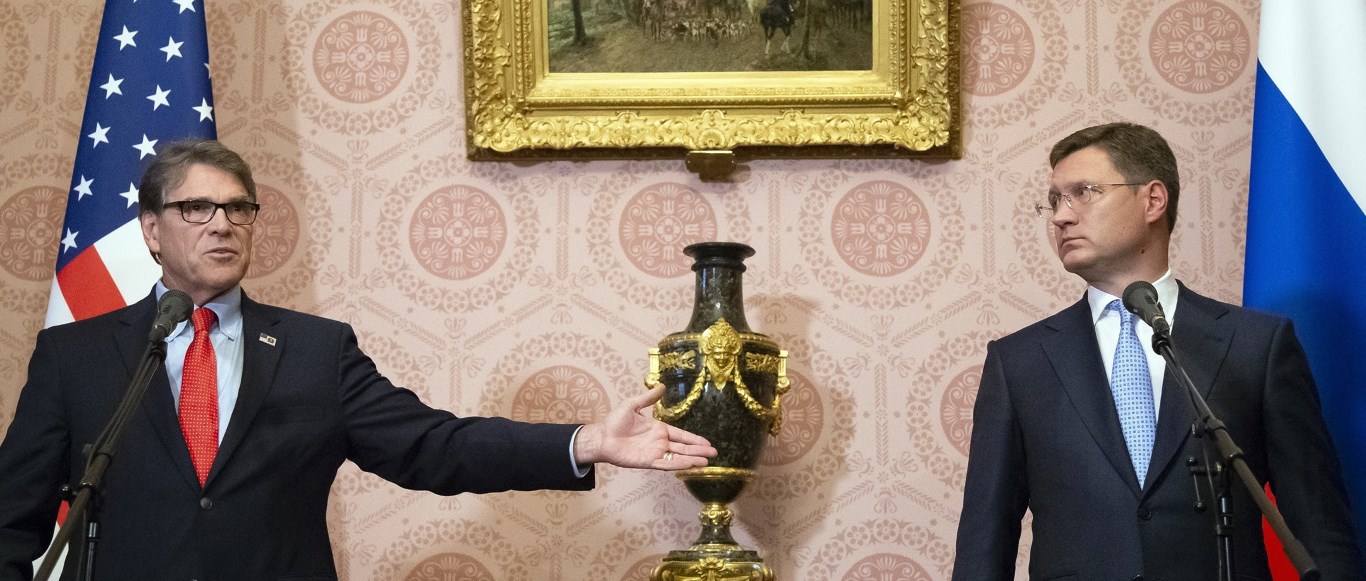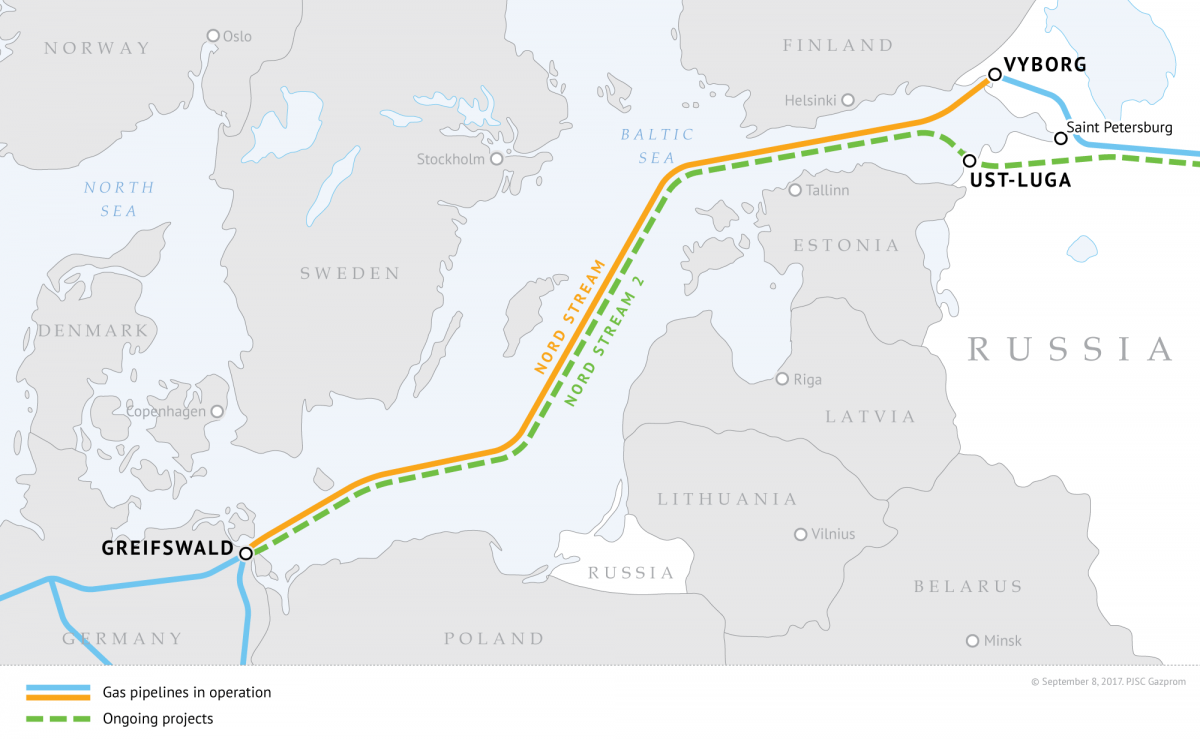Russia warns US against using energy as a leverage on Europe
September 15, 2018 | Expert Insights

“Energy should not be used as a tool to exert pressure on countries”, said Russian Energy Minister Aleksandr Novak in a meeting with the US Energy Secretary Rick Perry in Moscow.
Background
Russian Federation is the successor state to the Soviet Union. Before its dissolution, Soviet Union and the US were the key factions in world politics. Despite being allies during the World War II, by the end of the war, they had become hostile. Brewing mistrust was one of the main reasons for the Cold War. The Cold War, which lasted from 1947 to 1991, found much of the world divided into the Western Bloc (United States and its allies) and the Eastern Bloc (Soviet Union and its allies). The end of Cold War was marked by the dissolution of Soviet Union. Thus, Russia was created in its stead.
Russia has an upper-middle income mixed economy with state ownership in strategic areas of the economy. Market reforms in the 1990s privatized much of Russian industry and agriculture. Some estimates note that Russia contains over 30 percent of the world's natural resources. Russia has an abundance of oil, natural gas and precious metals, which make up a major share of Russia's exports.
Much of Russia’s oil that is extracted is from Western Siberia. However, in 2005, the Russian Ministry of Natural Resources estimated that another 4.7 billion barrels (0.75×109 m3) of oil exist in Eastern Siberia.
Rosneft is an integrated oil company majority owned by the Government of Russia. Rosneft is headquartered in Moscow's Balchug district near the Kremlin, across the Moskva River.
In 2014, US imposed sanctions on Russia over its alleged actions in the annexation of Crimea. These sanctions prohibit the exports of goods, services (not including financial services), or technology in support of exploration or production for Russian deepwater, Arctic offshore, or shale projects that have the potential to produce oil.

Read more about Russia’s massive oil industry here.
Read more about the Russo-German oil pipeline Nordtream 2.
Analysis
Aleksandr Novak’s response came after Energy Secretary Rick Perry criticised the Russian gas pipeline to Germany, Nord Stream 2. Perry said the project would “create a new choke point at a shallow depth vulnerable to disruption.” He demanded Russia “stop using its resources for influence and disruption.”
Responding to Perry, Novak suggested that it is not Russia that is putting pressure on Europe.
The goal of the $11 billion Nord Stream 2 pipeline project is to double the existing pipeline’s annual capacity of 55 billion cubic meters. The first part of the joint project has been in operation since 2011. Moscow has repeatedly described Nord Stream 2 as a “purely economic project” and said Washington opposes it because it wants to force-feed its own liquefied natural gas (LNG) to Europe.
Both officials have said that Russia and the US could work together on energy despite the difficulties. “Russian-American relations are currently experiencing not the best of times, but our countries are the leading energy powers that guarantee world security, and only through joint efforts we can meet the growing demand for energy in the world,” Novak said.
Perry said the two counties could ensure energy markets stability and energy diversification. “So as world-leading energy producers, the US and Russia, we have an opportunity to cooperate to ensure market’s stability and sustainability as well as increase energy diversity,” he stressed.
Speaking about areas where the two powers could work together, Perry said that the US wants to keep working with Russia on nuclear security. “We would also like to keep working with Russia on nuclear security, ensuring that nuclear power is managed in peaceful purpose.”
Assessment
Our assessment is that Russia is making sure that its supply routes to its largest consumer, the EU, remains untouched by American sanctions. The recently-imposed sanctions on Moscow target a few Russian oil companies. We believe that Russia is exposing its biggest weakness, that is, the over-dependence of the Russian economy on oil exports, through this demand. We feel that the US will find a way to target the Russian economy and impose new sanctions on it.








Comments